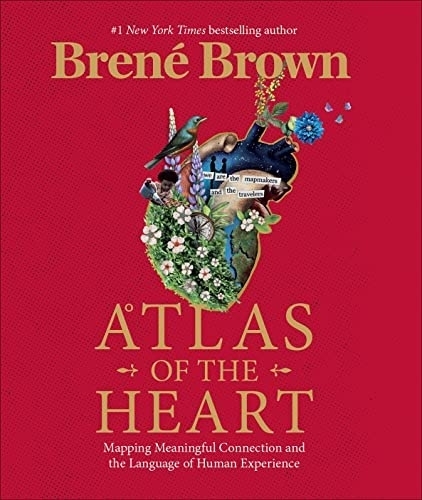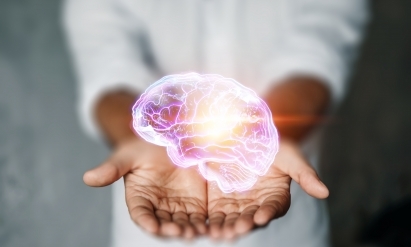Top 7 Behavioral Books of 2022
Sep 4
·
Reading time: 6 minutes
OK, OK. I know it’s not the end of the year just yet, but don’t you think September should be the new January? It’s much easier to set goals and get things done this time of the year when we’re well rested and energized after the summer. Nothing beats the productive energy of fall.
To go with that vibe, I thought this was a good time to share my top seven behavioral books of 2022.
To go with that vibe, I thought this was a good time to share my top seven behavioral books of 2022.

#1: The Molecule of More: How a Single Chemical in Your Brain Drives Love, Sex, and Creativity — and Will Determine the Fate of the Human Race
I accidentally heard about this book from fellow behavioral scientists (Hi, Juliette!), and it’s so good. I don’t remember the last time I had so many “Aha!” moments while reading a book.“The Molecule of More” is a pop-neuroscientific look at dopamine and its influence on our behavior. Now, if you’re anything like me, you’ve heard about dopamine before, and you know it’s one of the happiness neurotransmitters. Well, apparently, the story isn’t that simple. Liberman and Long explain how dopamine helped our species survive and thrive; and how it’s responsible for our unhappiness and addiction but also creativity, innovation, and even political views.
Human behavior will never make as much sense as it will after you read this book.

#2: Seven and a Half Lessons about the Brain
Many of you have heard of Lisa Feldman Barrett’s “How Emotions Are Made: The Secret Life of Brain.” Now she’s back with a short and sweet book with eight (well, seven and a half, to be precise) essays from the front lines of neuroscience research demystifying and explaining how our brains work. Barrett being Barrett debunks some of the most fundamental mainstream conceptions about how the brain works.
It’s a quick read and worth the time. Chapter 4 was my favorite.

#3: The Inflamed Mind: A Radical New Approach to Depression
Experts predict that within the next 20 years, depression will become the single biggest cause of disability worldwide. In “The Inflamed Mind,” Bullmore explains how and why depression is caused by inflammation in the body — a physical issue rather than emotional/mental.When you read the story, it all makes so much sense that you’ll wonder why no one has discovered this earlier. This approach also sheds light on the ineffectiveness of current depression treatments and the critical role diet and overall good physical health play in our mental and emotional well-being. The book is worth your time even if you don't struggle with depression.

#4: The Coddling of the American Mind: How Good Intentions and Bad Ideas Are Setting Up a Generation for Failure
This book should be obligatory for all parents, Generation Z, anyone working with Generation Z, and anyone who wants to understand why the world is as it is. While it’s heavily based on what’s happening on US college campuses, it’s safe to say the issues Lukianoff and Haidt talk about aren’t unique to the USA. They make a case that we now live in a culture of “safetism” where we're losing the ability to interact with people who have different beliefs and opinions from us. They describe six socio-cultural trends that make us, showing how we’re doomed if we don’t stop living in our comfortable and homogenous bubbles.
#5: What Happened to You?: Conversations on Trauma, Resilience, and Healing
Now, don’t let Oprah’s name fool you. It took me a while to pick up this book, thinking it’s too “blah” for my scientific standards. True, I wish the form was more academic and structured (it’s written as a conversation between Bruce Perry and Oprah, rather than your typical pop-science book). However, there is still a lot of good content in it.Until I read this book, I thought the word “trauma” was reserved for sexual abuse victims or people who lost loved ones in accidents or sudden illnesses. Well, as this book will show you, most of us “normal people” have gone through some sort of trauma. Perry — one of the leading brain development and trauma experts — explains how early childhood experience shapes our brains, nervous system, and behavior and what we can do about it.
Even if you don’t consider yourself a traumatized person, the book is worth a read. It’ll help you to look at other people through a “What happened to you?” lens rather than “What’s wrong with you?” leading to greater empathy, understanding, and maybe even acceptance.

#6: Atlas of the Heart: Mapping Meaningful Connection and the Language of Human Experience
If someone had told me what this book was about before I read it, I don’t think I’d have ever picked it up. The book is an encyclopedia of emotions — a list of 87 human emotions, with definitions focusing on differences between similar emotions (for example, the difference between feeling stressed and overwhelmed). That doesn’t sound like much, does it? Well, apparently, it’s what we all need. I’ve had quite a few “Aha!” moments while reading “Atlas of the Heart.” It turns out that understanding the nuances of our felt experiences can help us understand ourselves and our lives better. Also, by knowing what exact emotion we’re experiencing, we can better understand what to do about it.





